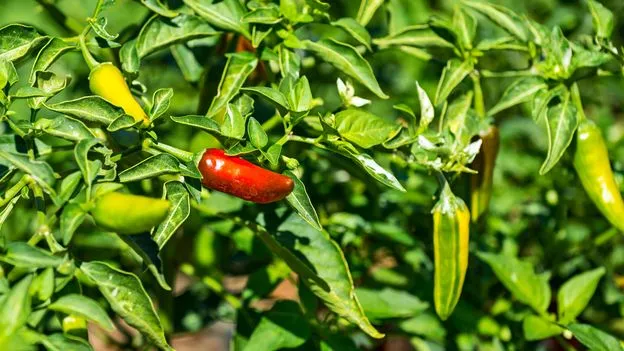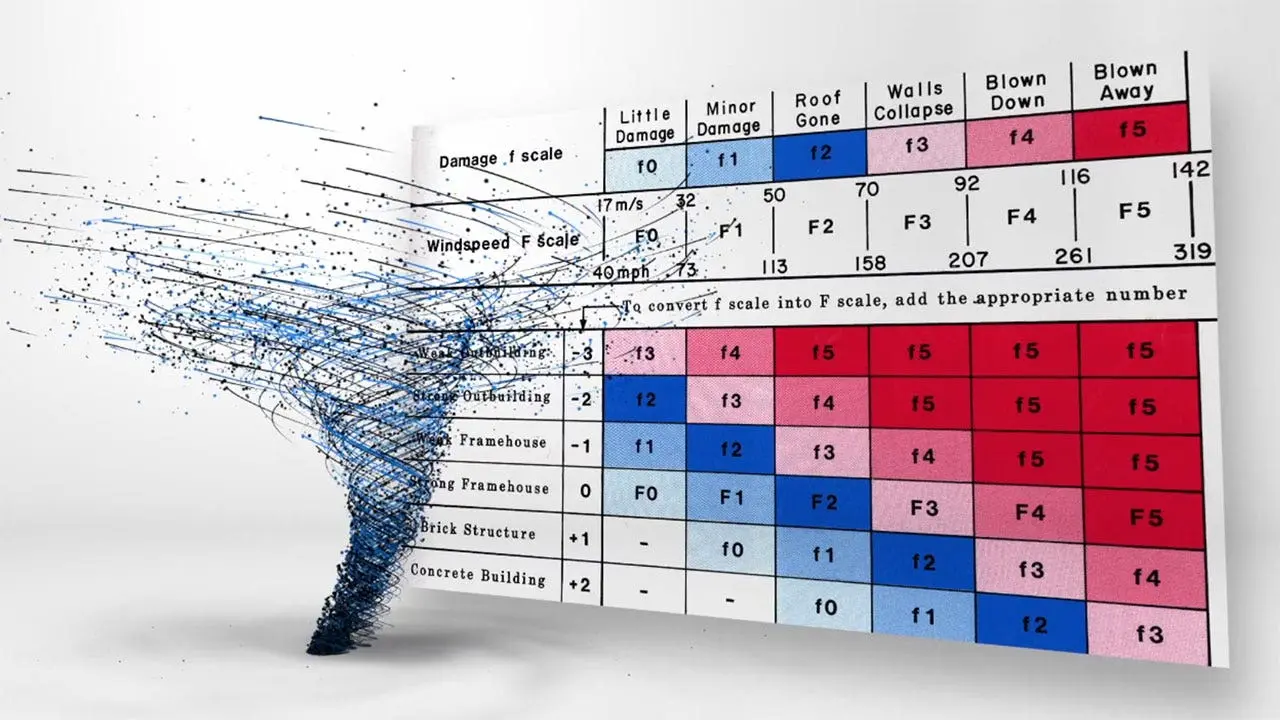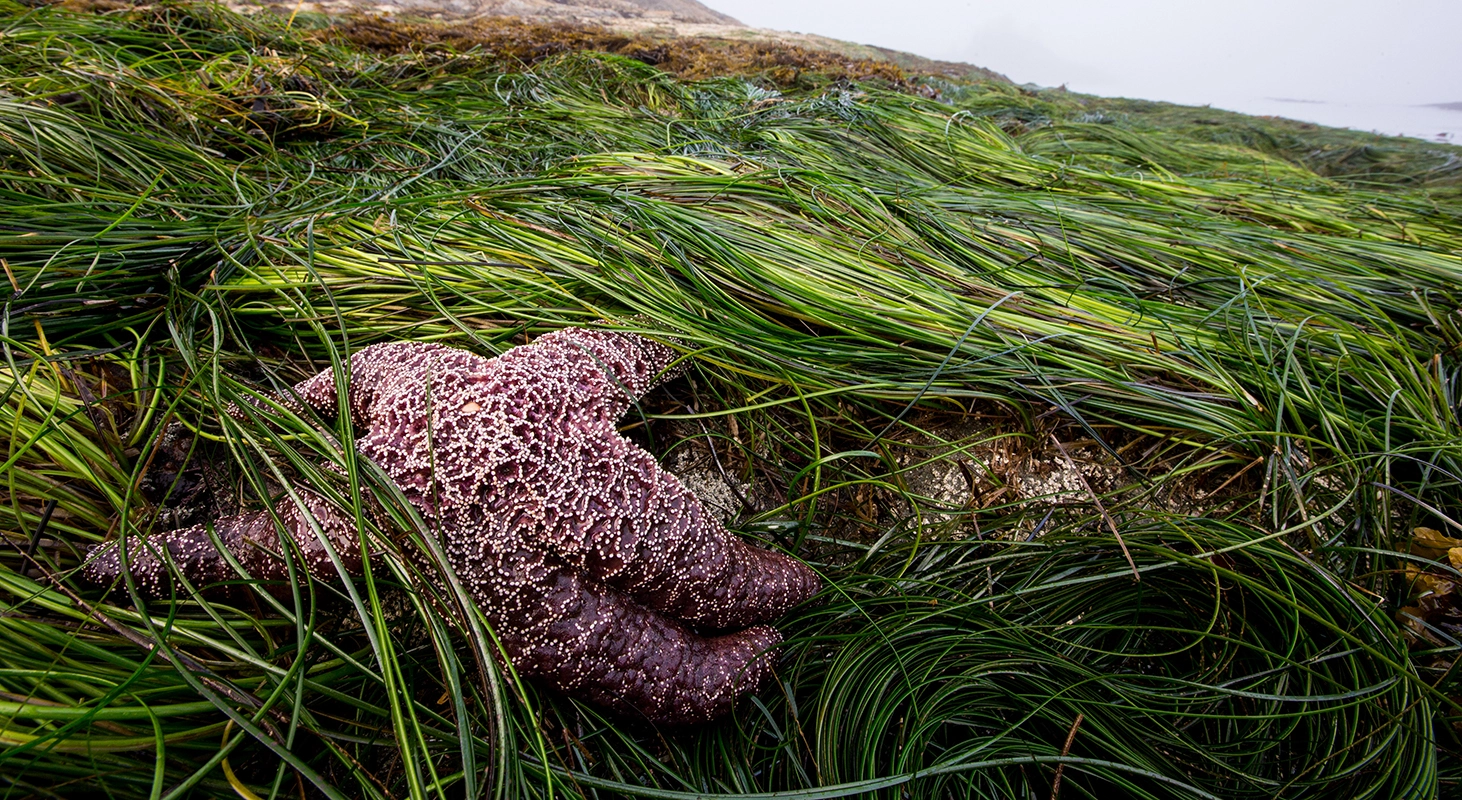
Once grown almost solely by enslaved people, the fish pepper was nearly lost forever until a chance find in a freezer revived the plant and it's now more popular than ever.

First US outlet I see picking up the story: https://www.mediaite.com/news/report-passwords-of-top-u-s-security-officials-found-online-hegseth-gabbard-waltz-among-those-affected/
Yep. Imo now with Plex you are paying for a much simpler and accessible setup. Seems fair enough to me. Lemmy FOSS or die users (every else in this thread seemingly) are not the target audience of Plex but they sure love to complain about it.
I use it as a work journal and personal knowledge management (PKM). Each day I open a daily journal note (built from a template with an easy shortcut) that contain rough notes on what I did that day. From that note I link over to project notes for any project I worked on or complex issues, scratch notes, etc. I do split windows, one with a narrow view of the daily note and then a larger panel for content notes (like documenting the project or create a scratch note or searching for a note on a problem I had 2 years ago that I need to remember about). There are many useful plugins but Templater and "Various Complements" are my favorite. Templater allows me to configure a template for any note I want to configure, so I can create a new note then hit a shortcut that will prompt me for a page title and auto fill the note with my template (that includes tags, headings, etc) for a meeting or new project or scratch note. Templater can also organize the note and move it around on my filesystem. Various Complements plugin allows me to build a dictionary of anything I want that will then fill in like an IDE when I'm typing in a note. So I use it for all my coworker names, I type 4 letters of someone's name and it pops up suggestions where I can tab-complete their full name.
It's truly a great program, better for me than all the others I've tried: OneNote, TiddlyWiki, DocuWiki, Dendron, and emacs. I used TiddlyWiki for years and had to bend it to my will in many wonky ways, then Obsidian came around and did 90% what I wanted out of the gate and the 3 or 4 plugins I use did the rest. I've been using it for a few years now.
Yeah and I guess you vote third party or not at all which also is a vote for trump. Or maybe you're not even in the US. Pie in the sky idealism is great but unless you're organizing and changing the system BEFORE a generationally crucial election, and you voted third party (aka for trump) then you are just as naive and you'll suffer along with everyone else for your ridiculous unrealistic ideals.
Harris would not have doomed us all to climate change or borked the whole fed government (the consequences of which we're already seeing and will only get much worse in the coming months) and definitely wouldn't have blamed a plane crash on all non-white people with straight up Jim Crow era messaging. Your comment is disingenuous or severely misinformed.
And how do they still fucking suck at searching for files. I can't find shit without the Everything app
Sorry to hear it, congrats on the weight loss tho, try and focus on that positive. It probably depends on the group but you could try and talk to people individually beforehand so it's not a big surprise with the whole group on the day of. And just be honest with them try and set some boundaries.
Permanently Deleted
Or you could dev up your own perfect solution and show them how easy it is to get funding to do it, show us all
This article is fucked up. No one (likely) here saw the 60 minutes opening, we're all reading about a huffpost article about the response from a bunch of people on Twitter, those might not even be Americans, they might have an IQ of 50, why are they driving the conversation? We're not taking the time to watch the 60 minutes and we're letting huffpost make money off of outrage culture. The content of the 60 minutes is the story and crucially important not the idiots/bots/propaganda responding to it. The shittiest type of journalism is based off Twitter replies and the best journalism is what 60 min is doing
That Bloomberg news interview probably did the same thing, I couldn't believe some of the garbage parts of the crowd were clapping at.
Lemmy sure loves a circlejerk about shitting on Firefox.
Look, another useful idiot
WOW LOOK AT THESE POLLS sponsored by draft kings
It's insane to me that he could even cash out, who out there even thinks the stock is worth anything, especially when trump starts selling . With my lack of knowledge about the stock market it makes no sense there would be anything on the buying side.
The people showing up to trump and turning point bullshit are not representative of the majority. But constant coverage of those morons since trump definitely makes it seem that way
Here's the info about it: https://mzl.la/3AcmG8q
Nah, fuck that. Vote.
Yeah good point, adds $10-$30 on top of rpi
After some light searching, am I missing something? I don't see n100 cheaper than rpi 5
I meant I googled the name of the person the tweet called out. Not much out there from verified sources is what I was saying. I think a paid for twitter check is probably a negative in the trustworthy dept. Thanks for the extra info though. It just all seems to be a one sided narrative at this point.
Oof Google that name and you get basically zero trustworthy news articles either way. Does "purportedly" even count when it's from twitter? Sounds terrible but I'll wait for a real source
TIL The fish pepper was thought to be extinct for much of the 20th century until the rediscovery of fifty year-old seeds in a family's freezer

Once grown almost solely by enslaved people, the fish pepper was nearly lost forever until a chance find in a freezer revived the plant and it's now more popular than ever.

The fish pepper (named for its common use in seafood dishes) is popular today, but it nearly disappeared altogether: that it still exists is thanks to William Woys Weaver, a Maryland author and ethnographer. In 1995, Weaver discovered a jar of seeds in the bottom of a freezer that belonged to his grandfather, H Ralph Weaver. Back in the 1940s, African American folk artist Horace Pippin gifted the fish pepper seeds to H Ralph Weaver after getting treated by him for arthritis using honeybee stings from a hive belonging to the family.
Decades later, when William found the jar of seeds, he handed them over to the Seed Savers Exchange, a non-profit that catalogues and preserves heirloom varieties. The Exchange regenerated the seeds and began cultivating them before offering them to the public. They first sold in Maryland and the surrounding Mid-Atlantic region before becoming popular elsewhere.
TIL VH1's Pop Up Video is "lost media". Due to licensing issues, the only way that episodes can be found is through home recordings of the show from when it aired
Currently, all the master copies of the episodes from the original run are being held by the Rock & Roll Hall of Fame. They were donated by Tad Low, the creator of the show. Although master copies are known to exist, they are not publicly available due to licensing. [...] With the sheer number of episodes produced, the fact that both runs of the show are no longer rerun on VH1 or MTV Classic, and the fact that the show did not receive many home media releases (apart from a 1999 80's-themed VHS / DVD) due to licensing issues, episodes of the show are very hard to come by. The only way that episodes can be found is through home recordings of the show from when it aired.
TIL In the Hot Coffee lawsuit against McDonalds,punitive damages were given due to McDonalds intentionally overheating coffee to save money on refills
During the trial it was revealed that McDonald’s knew that heating their coffee to this temperature would be dangerous, but they did it anyways because it would save them money. When you serve coffee that is too hot to drink, it will take much longer for a person to drink their coffee, which means that McDonald’s will not have to give out as many free refills of coffee. This policy by the fast food chain is the reason the jury awarded $2.7 million dollars in punitive damages in the McDonald's hot coffee case. Punitive damages are meant to punish the defendant for their inappropriate business practice.
I think this is a "drum trap", is that right? I'm smelling sewer gas, should I replace it?


Since we moved in we've noticed a sewer smell from time to time. I had a plumber come and identify this laundry discharge pipe not having a trap as the culprit. He ended up ghosting me so I cut more into the wall and found this black thing I couldn't identify until now (I think). I guess it's a drum trap after doing some more googling. If it's working as designed I guess it's supposed to hold water in and not let sewer gas through? but we definitely have a problem with the smell coming from this laundry room. Is this maybe not to culprit and I could leave it alone? I'm considering cutting it out and just connecting PVC the whole way through. Any recommendations or thoughts would be much appreciated.
TIL The first recorded human death by robot was in 1979 when 25-year-old Ford Motor assembly line worker Robert William was struck by an arm of a malfunctioning one-ton robot
Robert Nicholas Williams was an American factory worker who was the first known human to be killed by a robot. While working at the Ford Motor Company's Michigan Casting Center, Williams was killed by an industrial robot arm on January 25, 1979.
Williams was one of three operators of the parts retrieval system, a five-story robot built by the Unit Handling Systems division of Litton Industries. The robot was designed to retrieve castings from high density storage shelves at the Flat Rock plant. Part of the machine included one-ton transfer vehicles, which were carts on rubber wheels equipped with mechanical arms to move castings to and from the shelves. When the robot gave erroneous inventory readings, Williams was asked to climb into the racks to retrieve parts manually. Another news account states the robot was not retrieving parts quickly enough.
He climbed into the third level of the storage rack, where he was struck from behind and crushed by one of the one-ton transfer vehicles, killing him instantly. His body remained in the shelf for 30 minutes until it was discovered by workers who were concerned about his disappearance.
His family sued the manufacturers of the robot, Litton Industries, alleging "that Litton was neg
TIL Mr. Tornado (Tetsuya Fujita) who created the tornado intensity F0-F5 scale was living in the primary target city when the atomic bomb was dropped but the city was spared because it was too cloudy

"If you're gonna study thunderstorms, down bursts, and tornadoes, a great place to do that is the Midwest."

"It was a certain weather pattern that spared Fujita from that bombing, allowing him to pursue his atmospheric discoveries.
Fujita was living in Kokura, Japan during World War II, which was the primary target for the "Fat Man" atomic bomb. But on the morning of August 9, 1945, the city was obscured by clouds and smoke, so the bomb was dropped on the secondary target, Nagasaki."
Wikipedia: "Although he is best known for creating the Fujita scale of tornado intensity and damage, he also discovered downbursts and microbursts and was an instrumental figure in advancing modern understanding of many severe weather phenomena and how they affect people and communities, especially through his work exploring the relationship between wind speed and damage."
TIL The Katy Freeway in Houston, TX was expanded in 2008 to 26 lanes (one of the widest in the world) and 5 years later had longer peak travel times than before the expansion

With billions of dollars available to improve transportation infrastructure, states have a chance to try new strategies for addressing congestion. But some habits are hard to break.

For critics of widening projects, the prime example of induced demand is the Katy Freeway in Houston, one of the widest highways in the world with 26 lanes.
Immediately after Katy’s last expansion, in 2008, the project was hailed as a success. But within five years, peak hour travel times on the freeway were longer than before the expansion.
Matt Turner, an economics professor at Brown University and co-author of the 2009 study on congestion, said adding lanes is a fine solution if the goal is to get more cars on the road. But most highway expansion projects, including those in progress in Texas, cite reducing traffic as a primary goal.
“If you keep adding lanes because you want to reduce traffic congestion, you have to be really determined not to learn from history,” Dr. Turner said.
TIL The term keystone species refers to species that define an entire ecosystem, where it would be dramatically different or cease to exist without the species. Examples: beavers, wolves, and sea otte

A keystone species helps define an entire ecosystem. Without its keystone species, the ecosystem would be dramatically different or cease to exist altogether.

A keystone species is an organism that helps define an entire ecosystem. Without its keystone species, the ecosystem would be dramatically different or cease to exist altogether.
Keystone species have low functional redundancy. This means that if the species were to disappear from the ecosystem, no other species would be able to fill its ecological niche. The ecosystem would be forced to radically change, allowing new and possibly invasive species to populate the habitat.
Any organism, from plants to fungi, may be a keystone species; they are not always the largest or most abundant species in an ecosystem. However, almost all examples of keystone species are animals that have a huge influence on food webs. The way these animals influence food webs varies from habitat to habitat.
TIL Kudzu growth in the US has been way overestimated. Newer estimates stated that Asian privet had invaded some 3.2 million acres—14 times kudzu’s territory

A naturalist cuts through the myths surrounding the invasive plant

In news media and scientific accounts and on some government websites, kudzu is typically said to cover seven million to nine million acres across the United States. But scientists reassessing kudzu’s spread have found that it’s nothing like that. In the latest careful sampling, the U.S. Forest Service reports that kudzu occupies, to some degree, about 227,000 acres of forestland, an area about the size of a small county and about one-sixth the size of Atlanta. That’s about one-tenth of 1 percent of the South’s 200 million acres of forest. By way of comparison, the same report estimates that Asian privet had invaded some 3.2 million acres—14 times kudzu’s territory. Invasive roses had covered more than three times as much forestland as kudzu.
TIL The initial rate in 1866 for messages sent along transatlantic cable was $10 a word, with a ten word minimum.

When the first transatlantic cable was successfully laid in the summer of 1858, two continents buzzed with the promise of instant communication.

The initial rate in 1866 for messages sent along the transatlantic cable was ten dollars a word, with a ten word minimum, meaning that a skilled workman of the day would have to set aside ten weeks' salary in order to send a single message. As a practical matter, this limited cable use to governments (transmissions from the British and American governments had priority under the terms of their agreements with Field's telegraph companies) and big businesses (who made up about 90 percent of telegraph traffic in the early years).
Businesses quickly turned to the use of commercial codes through which one word could convey an entire message. For example, the word "festival" as telegraphed by one fireworks manufacturer meant "a case of three mammoth torpedoes." And for truly urgent information, price was considered no object: New York Tribune editor Horace Greeley spent $5,000 (over $65,000 in 2003 dollars) in 1870 to transmit one report about the Franco-Prussian War. During three months in
TIL The first air conditioner was created not for cooling a room but to prevent humidity causing swelling pages and blurry prints in a printing press

The invention was once received with chilly skepticism but has become a fixture of American life

At the turn of the 20th century, humidity threatened the reputation of Brooklyn’s Sackett-Wilhelms Lithographic and Publishing Company’s high-quality color printing. After two summers of extreme heat disrupted business and caused swelling pages and blurry prints, the printing company found that a nascent cooling industry could offer help.
Willis Carrier, a 25-year-old experimental engineer, created a primitive cooling system to reduce humidity around the printer. He used an industrial fan to blow air over steam coils filled with cold water; the excess humidity would then condense on the coils and produce cooled air.
TIL The name "flashlight" came from the first lights that could only briefly illuminate because the batteries couldn’t hold a charge for long periods of time
David Misell, an English inventor, invented the first flashlight and patented it in 1899. It used three D batteries in a tube that was used as the handle of the device. The batteries supplied enough power to create light through an incandescent bulb.
The name “flash” light was a knock on the reliability of the model. These units could not be left on for long because of the zinc-carbon batteries that couldn’t hold an electrical current for long periods of time, thus creating only a “flash” of light.
These early flashlights were nothing more than a novelty at the time. The batteries were inefficient, and the bulbs were dull. Improvements of the batteries and bulbs by Eveready and others started to increase the popularity of flashlights by the second decade of the 1900s.
How do you discover new (to you) music?
For the past few years Spotify's Discover Weekly has been the main way I discover new (to me) music. Secondarily I guess just from browsing the related artists of the ones I already listen to. Looking for other strategies inside or outside of spotify.